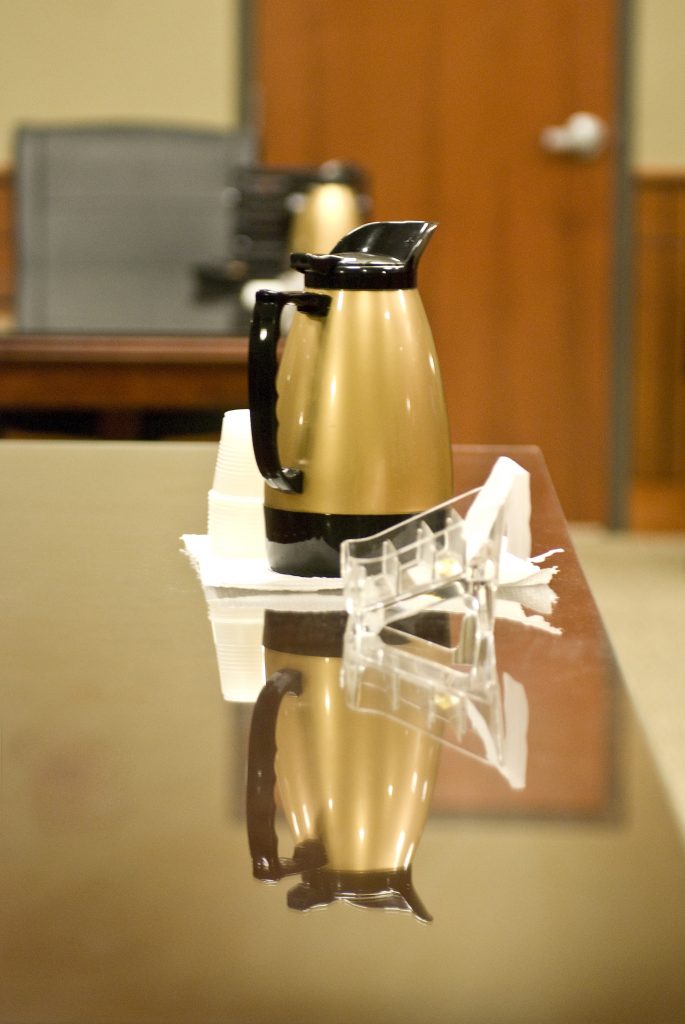 When a person is injured, a countdown begins. If you think you have a lawsuit, you need to file that lawsuit within a certain amount of time or else you will lose the right to that claim. Similar to what some states would call a statute of limitations, Louisiana uses something called “liberative prescription” or just “prescription.” Under this legal doctrine, after a certain amount of time has passed, a plaintiff can no longer bring their claim. The claim is treated as if it never came into being. In some cases, this period is one year. See La. C.C. art. 3492. A defendant can avoid a claim that has passed this period under the defense of peremptory exception, which dismisses a claim for being untimely filed. For some plaintiffs, there is relief in the form of the legal doctrine contra non valentum. Under this idea, the time period to bring a claim does not begin on the day the injury occurred but rather when the person realizes what has happened with enough certainty to file a lawsuit. See Bailey v. Khoury, 891 So.2d 1268 (La. 2005). Prescription exists to keep parties from being surprised by claims from events that have happened years in the past. Contra non valentum likely exists to help people who have been prevented in some way from discovering exactly who or what has caused their injury.
When a person is injured, a countdown begins. If you think you have a lawsuit, you need to file that lawsuit within a certain amount of time or else you will lose the right to that claim. Similar to what some states would call a statute of limitations, Louisiana uses something called “liberative prescription” or just “prescription.” Under this legal doctrine, after a certain amount of time has passed, a plaintiff can no longer bring their claim. The claim is treated as if it never came into being. In some cases, this period is one year. See La. C.C. art. 3492. A defendant can avoid a claim that has passed this period under the defense of peremptory exception, which dismisses a claim for being untimely filed. For some plaintiffs, there is relief in the form of the legal doctrine contra non valentum. Under this idea, the time period to bring a claim does not begin on the day the injury occurred but rather when the person realizes what has happened with enough certainty to file a lawsuit. See Bailey v. Khoury, 891 So.2d 1268 (La. 2005). Prescription exists to keep parties from being surprised by claims from events that have happened years in the past. Contra non valentum likely exists to help people who have been prevented in some way from discovering exactly who or what has caused their injury.
The Louisiana Fifth Circuit Court of Appeal recently applied these legal theories on a work-related illness. Natividad Tenorio worked from 1981 to 1988 in his employer’s (Alpha Technical Service) yard removing radioactive substances (oilfield-generated radiation or OGR) from oil and gas pipes. In November 2009, Mr. Tenorio was diagnosed with throat cancer. In 2013, a former co-worker informed Mr. Tenorio about the dangerous airborne radiation to which the workers had been exposed during that period of years. One year later, Mr. Tenorio brought a lawsuit against numerous gas and oil companies that had used the radiation-generating pipes. The Defendants asserted their affirmative defense of peremptory exception under the notion that the time period for prescription had passed. The Trial Court sided with the Defendants and dismissed the lawsuit; Mr. Tenorio appealed.
On appeal, Mr. Tenorio argued that the Trial Court should not have deemed his lawsuit “prescribed” after only one year. He claimed that the grace period should have been extended under the theory of contra non valentum since he did not discover that his work put him at risk of cancer until four years after his diagnosis. Defendants argued that Mr. Tenorio should have known the cause within the year following his diagnosis and that he did not show any evidence of anything that may have prevented him from discovering that the radiation from his former job led to his cancer. The Court of Appeal noted that under these circumstances, the burden of proving that his claim was not prescribed rested with Mr. Tenorio. As such, he offered evidence that showed he only found out about the radiation in 2013. However, the Court of Appeal found for the Defendants, reasoning that when a person fails to realize that he or she has a potential claim through only his or her own neglect or ignorance, that person should not be granted a grace period. Moreover, a year-long prescription period in a personal injury case such as this one is deemed to begin when a plaintiff knows or should know the relevant facts. The Court of Appeal believed that Mr. Tenorio should have researched possible causes of his cancer immediately after the diagnosis in order to be able to begin his lawsuit within that first year. But because he did not, the Court of Appeal found that Mr. Tenorio was unreasonably late in filing his lawsuit and the Trial Court’s dismissal of his claim was upheld.
 When an individual employs tactics to instill humiliation, fear, and emotional distress in another person, they should be held accountable for the damages they cause. Fortunately, Louisiana legislators agree and have provided for exactly that under its civil code. See La. C.C. art. 2315. As an initial matter, these bad acts must be “intentional,” i.e., the actor must consciously desire the physical result of the act or know that the result is substantially likely to follow from his conduct. Let us now take a look at a case that turns on the issue of intent to gain a better understanding.
When an individual employs tactics to instill humiliation, fear, and emotional distress in another person, they should be held accountable for the damages they cause. Fortunately, Louisiana legislators agree and have provided for exactly that under its civil code. See La. C.C. art. 2315. As an initial matter, these bad acts must be “intentional,” i.e., the actor must consciously desire the physical result of the act or know that the result is substantially likely to follow from his conduct. Let us now take a look at a case that turns on the issue of intent to gain a better understanding. Louisiana Personal Injury Lawyer Blog
Louisiana Personal Injury Lawyer Blog


 Lawsuits can be quite complicated, even for seasoned attorneys. However, when one is representing himself, the complications can be even more complex. Especially, when the law does not support your claim. The following case demonstrates the need for an experienced attorney when it comes to constitutional rights violation allegations and litigation.
Lawsuits can be quite complicated, even for seasoned attorneys. However, when one is representing himself, the complications can be even more complex. Especially, when the law does not support your claim. The following case demonstrates the need for an experienced attorney when it comes to constitutional rights violation allegations and litigation. Ponzi schemes ultimately come to an end and unfortunately cause a lot of pain, suffering, and litigation. The Stanford Ponzi scheme is no exception. As demonstrated in the following case, the complex nature of such schemes demonstrates the need for excellent legal representation if you are the victim of an unscrupulous Ponzi schemer.
Ponzi schemes ultimately come to an end and unfortunately cause a lot of pain, suffering, and litigation. The Stanford Ponzi scheme is no exception. As demonstrated in the following case, the complex nature of such schemes demonstrates the need for excellent legal representation if you are the victim of an unscrupulous Ponzi schemer. The commencement of pro se litigation, meaning without attorney representation, is no easy task. A common aspect of pro se litigation involves a request to proceed in forma pauperis (IFP). A granted IFP request allows a pro se litigant to have the prepayment of fees or costs waived.
The commencement of pro se litigation, meaning without attorney representation, is no easy task. A common aspect of pro se litigation involves a request to proceed in forma pauperis (IFP). A granted IFP request allows a pro se litigant to have the prepayment of fees or costs waived. This post continues our discussion on the United States Fifth Circuit Court of Appeal’s analysis of the public policy exception in
This post continues our discussion on the United States Fifth Circuit Court of Appeal’s analysis of the public policy exception in  The world we live in today is more interconnected than ever before. International commerce has led to rapid economic development in the United States and abroad. As more and more firms participate in international commerce, complex legal disputes arise. International disputes involve a multitude actors of different nationalities, implicating various national and international legal frameworks. In the mid-20th century, the United States and countries around the world sought to harmonize international commerce by codifying rules governing the resolution of international disputes. As a global commercial hub, United States courts have been pivotal in interpreting these international rules and more generally, contributing to the development of private international law. In 2015, the United States Fifth Circuit Court of Appeal interpreted the
The world we live in today is more interconnected than ever before. International commerce has led to rapid economic development in the United States and abroad. As more and more firms participate in international commerce, complex legal disputes arise. International disputes involve a multitude actors of different nationalities, implicating various national and international legal frameworks. In the mid-20th century, the United States and countries around the world sought to harmonize international commerce by codifying rules governing the resolution of international disputes. As a global commercial hub, United States courts have been pivotal in interpreting these international rules and more generally, contributing to the development of private international law. In 2015, the United States Fifth Circuit Court of Appeal interpreted the  This post follows up on our discussion of the Louisiana Supreme Court’s 2015 ruling requiring that a contradictory hearing is held before striking a defendant’s deficient answer and entering a
This post follows up on our discussion of the Louisiana Supreme Court’s 2015 ruling requiring that a contradictory hearing is held before striking a defendant’s deficient answer and entering a 
 When a person is injured, a countdown begins. If you think you have a lawsuit, you need to file that lawsuit within a certain amount of time or else you will lose the right to that claim. Similar to what some states would call a statute of limitations, Louisiana uses something called “liberative prescription” or just “prescription.” Under this legal doctrine, after a certain amount of time has passed, a plaintiff can no longer bring their claim. The claim is treated as if it never came into being. In some cases, this period is one year. See
When a person is injured, a countdown begins. If you think you have a lawsuit, you need to file that lawsuit within a certain amount of time or else you will lose the right to that claim. Similar to what some states would call a statute of limitations, Louisiana uses something called “liberative prescription” or just “prescription.” Under this legal doctrine, after a certain amount of time has passed, a plaintiff can no longer bring their claim. The claim is treated as if it never came into being. In some cases, this period is one year. See  Good news for professionals; potentially bad news for consumers. Affixing a professional seal to a document does not alone expose a professional to liability if the professional does not directly offer any services to the consumer. The Louisiana Fourth Circuit Court of Appeal recently heard a case that dealt with this very issue.
Good news for professionals; potentially bad news for consumers. Affixing a professional seal to a document does not alone expose a professional to liability if the professional does not directly offer any services to the consumer. The Louisiana Fourth Circuit Court of Appeal recently heard a case that dealt with this very issue.